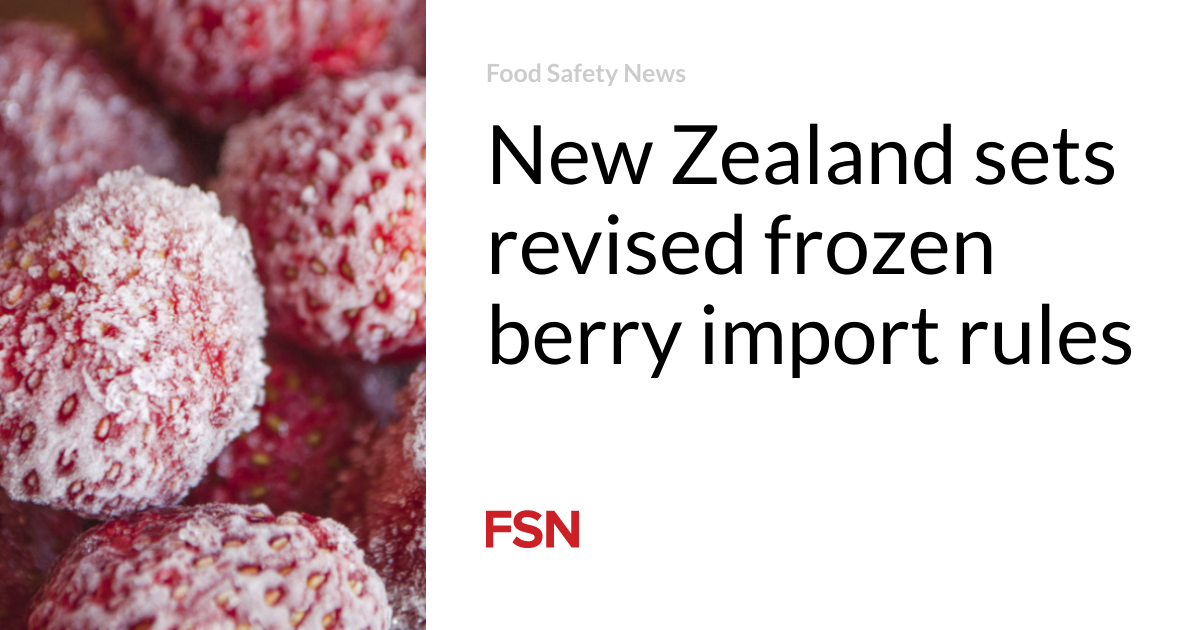Food
New Zealand sets revised import rules for frozen berries

New Zealand Food Safety has issued new import rules for frozen berries that aim to keep citizens safe and improve processes at the border.
The changes will come into effect on August 1 and importers will have 18 months until January 31, 2026 to transition to the changed requirements.
From 2022 to 2023, there was an outbreak of hepatitis A virus associated with frozen berries from Serbia, affecting 39 people.
Changes in requirements
Vincent Arbuckle, New Zealand’s deputy director general of food safety, said several countries have recalled frozen berries in the past over concerns about hepatitis A, which is not killed by freezing temperatures.
“We have been working hard to identify and implement ways to improve food safety rules to better manage risks to consumers. As part of this, we have been working closely with major importers of frozen berries, who have expressed their strong support for the changes,” he said.
“Now that the outbreak is over and affected products have been removed from shelves, the risk to consumers has been reduced. However, hepatitis A virus in imported frozen berries remains a potential risk. If consumers are concerned or belong to a vulnerable population group, they can heat-treat frozen berries for ages over 85 degrees C (185 degrees F) for at least 1 minute.”
Frozen berries have been moved from foods with increased legal interest to the high legal interest food category, which requires approval to enter the country.
Requirements for microbiological testing of berries at the border have been replaced by stricter rules for manufacturers before shipment.
In a first for the country, the changes introduce independent third-party certification to confirm that a foreign manufacturer’s food safety systems meet New Zealand standards. Written assurance must be provided by means of an official certificate that meets certain requirements or a certificate recognized by the Global Food Safety Initiative (GFSI) accompanied by a manufacturer’s declaration.
New Zealand Food Safety does not intend to limit the use of third-party certificates to those recognized by the GFSI, but others will need to be reviewed and approved by the agency.
Arbuckle said this gives the agency greater confidence that risks associated with frozen berries are managed before they come to New Zealand.
Discussion response
The rules apply to frozen berries, including mixed frozen foods containing frozen berries imported from any ready to eat (RTE) country. Examples of berries include blueberries, cranberries, raspberries and strawberries.
It does not cover RTE frozen berries that have been subjected to treatment sufficient to eliminate hazards including norovirus and hepatitis A, and where evidence of such methods has been provided to MPI. RTE frozen processed foods that contain berries, such as ice cream, frozen yogurt and frozen desserts, are also exempt.
In July 2023, New Zealand Food Safety proposed the new import requirements, and a comment period took place between October 2023 and January 2024. Nine entries were received from Foodstuffs New Zealand, Horticulture New Zealand and United Fresh.
Overall, respondents supported the new requirements, especially third-party certification as an option to meet approval requirements.
Two parties expressed concerns about the feasibility and reliability of the GFSI recognized certification as applied to primary production growers and requested an alternative. Another option was already included in the draft rules.
The Australian Department of Agriculture, Fisheries and Forestry (DAFF) supported the planned changes. The United States requested clarification on whether a certificate issued by the Food and Drug Administration (FDA) to foreign governments for products covered by the notification would be acceptable. New Zealand Food Safety said it would respond promptly to better understand the said certificate and address the request for clarification.
(To sign up for a free subscription to Food Safety News, click here.)













